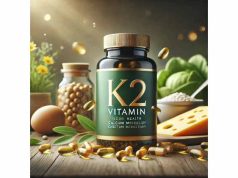
Lemon Balm Extract, derived from the leaves of Melissa officinalis, has a long history of supporting general wellness. However, its potential role in improving vision and nurturing eye health is now capturing more attention. Thanks to its rich antioxidant content and soothing properties, Lemon Balm Extract may help protect sensitive eye tissues from oxidative stress, inflammation, and other factors that can diminish visual clarity. This article explores the ways in which Lemon Balm Extract Improves Vision, highlighting how it supports overall Eye Health, the best practices for supplement usage, and the current scientific insights that underscore its effectiveness in helping you see the world more clearly.
Table of Contents
- Getting to Know Lemon Balm Extract: An Overview
- Mechanisms Behind Lemon Balm Extract’s Vision-Enhancing Potential
- Leading Advantages of Lemon Balm Extract for Ocular Well-Being
- Effective Techniques for Using Lemon Balm Extract to Boost Eye Health
- Latest Findings and Investigations
- Common Questions About Lemon Balm Extract
- References and Sources
Getting to Know Lemon Balm Extract: An Overview
Lemon Balm Extract is produced from the fragrant leaves of the lemon balm plant, a versatile herb native to the Mediterranean region and parts of Asia. Traditionally, lemon balm has been prized for its calming, mood-lifting effects and its potential to soothe digestive issues. Over time, more individuals began exploring its broader health applications, including stress management, immune support, and now, ocular health.
Below are the key characteristics that make Lemon Balm Extract an enticing addition to a vision-improvement regimen:
- High Antioxidant Content
Lemon Balm Extract contains compounds like rosmarinic acid, caffeic acid, and various flavonoids. Antioxidants neutralize harmful free radicals that can damage cells, including those in the eyes. - Anti-Inflammatory Effects
Chronic inflammation is a major contributor to many health complications, including degenerative eye conditions. By reducing inflammation markers, Lemon Balm Extract may offer protective support for delicate ocular tissues. - Stress-Reducing Properties
The link between stress and diminished vision often goes overlooked. Prolonged stress can elevate cortisol levels and strain multiple systems, sometimes impacting blood flow to the eyes. Lemon Balm Extract’s relaxing qualities may help mitigate stress-related vision concerns indirectly. - Gentle and Well-Tolerated
For most people, Lemon Balm Extract is easy to incorporate into daily life, either as a tea, tincture, capsule, or standardized supplement. Its mild nature—coupled with relatively rare side effects—makes it appealing to those looking for natural eye health solutions. - Complementary to Modern Lifestyles
Overexposure to digital screens and environmental pollutants can accelerate oxidative stress in the eyes. Incorporating antioxidant-rich botanicals like Lemon Balm Extract can help modern individuals better manage these increasing challenges.
While Lemon Balm Extract alone is not a substitute for conventional eye care, its combination of antioxidant, anti-inflammatory, and calming properties offers a unique pathway toward enhancing visual clarity. Its gentle nature also allows for synergy with other eye-friendly supplements, such as lutein, zeaxanthin, or omega-3 fatty acids. Before delving into more details, it’s helpful to understand precisely how Lemon Balm Extract contributes to Eye Health on a physiological level, which is addressed in the following sections.
Mechanisms Behind Lemon Balm Extract’s Vision-Enhancing Potential
Vision is an intricate process involving multiple ocular structures, including the cornea, lens, retina, and optic nerve. Each component demands consistent blood flow, efficient nutrient delivery, and robust defense against oxidative stress. Lemon Balm Extract for Vision Improvement works via several interlinked pathways.
1. Protecting Retinal Cells from Oxidative Damage
The retina transforms light into neural signals. This process generates free radicals that can harm retinal cells if not balanced by antioxidants. Lemon Balm Extract’s rosmarinic acid has demonstrated potent antioxidant activity, aiding in scavenging free radicals before they inflict lasting harm. By defending the retina from excess oxidation, Lemon Balm Extract might support the long-term functionality of photoreceptors, critical for crisp vision.
2. Supporting Healthy Blood Flow
Proper circulation to the eyes is essential for nutrient and oxygen transport, as well as for the removal of metabolic waste. Components in Lemon Balm Extract may help maintain normal vascular function by calming the nervous system and moderating stress responses that can constrict blood vessels. The result is a steadier supply of oxygen and nutrients to ocular tissues.
3. Reducing Low-Grade Inflammation
Inflammation within the eye can lead to discomfort, dryness, and sometimes progressive conditions that erode vision. Research indicates that certain phenolic acids in Lemon Balm Extract can inhibit pro-inflammatory enzymes, diminishing the inflammatory environment around ocular structures. Lower levels of inflammation can also preserve the integrity of the tear film, contributing to daily visual comfort.
4. Stabilizing the Tear Film
A healthy tear film is necessary to keep the cornea lubricated and free of debris. Chronic stress, poor diet, or hormonal imbalances can reduce tear quality, leading to dryness and irritation. Although not a direct tear booster, Lemon Balm Extract’s calming influence and broad support for systemic balance may help the body better regulate tear production.
5. Alleviating Eye Strain from Screen Overuse
For individuals who spend hours on digital devices, eye strain is often accompanied by headaches, blurred vision, and dryness. Lemon Balm Extract’s capacity to soothe the nervous system can indirectly lessen these symptoms. By reducing emotional tension, it may lower the likelihood of muscle tightness around the eyes, facilitating a more relaxed gaze and reduced ocular stress over extended screen sessions.
6. Enhancing Night Vision
While comprehensive clinical evidence is still emerging, anecdotal observations and preliminary studies suggest that improved microcirculation and antioxidant levels can aid night vision. If Lemon Balm Extract helps maintain healthy blood flow and offsets oxidative harm, it could support rod cells in the retina, which are responsible for vision in low-light conditions.
7. Potential Interaction with Other Nutrients
Lemon Balm Extract’s synergy with vitamins C and E, as well as minerals like zinc and selenium, can further amplify its protective role. When combined, these nutrients offer a broad-spectrum defense that targets multiple aspects of ocular well-being—from retinal preservation to lens clarity.
By tackling the core issues—oxidative stress, inflammation, and suboptimal circulation—Lemon Balm Extract Eye Health strategies can serve as an integral part of a broader vision care plan. Although individual responses will vary, particularly with respect to age, baseline nutrition, and genetic predispositions, Lemon Balm Extract stands out as an approachable, plant-based supplement with multiple layers of support for overall eye function.
Leading Advantages of Lemon Balm Extract for Ocular Well-Being
When considering a supplement for vision enhancement, it’s important to weigh the comprehensive advantages against potential limitations. Lemon Balm Extract Vision Benefits extend beyond addressing immediate symptoms; it also contributes to long-term eye care and comfort.
Below are the top advantages of Lemon Balm Extract for Eye Health:
- Holistic Stress Management
Stress can indirectly undermine vision by impairing blood flow, increasing muscle tension, and boosting cortisol levels. Lemon Balm Extract is often praised for its calming properties, which may help regulate mood and reduce mild anxiety. By creating a calmer physiological environment, the eyes are placed under less strain, facilitating better visual performance. - Natural Antioxidant Fortification
The ocular environment is particularly vulnerable to oxidative stress, as it is continuously exposed to light and reliant on ample oxygen. Lemon Balm Extract’s antioxidants help neutralize excess free radicals, preventing them from damaging the lens, cornea, and retinal cells. - Support Against Age-Related Vision Decline
While no herb can stop aging entirely, antioxidants and anti-inflammatory agents can slow the progression of common age-related conditions like macular degeneration or cataracts. With regular use, Lemon Balm Extract might act as an extra layer of protection for aging eyes, keeping them strong and functional over a longer period. - Enhancement of Daily Visual Comfort
Whether it’s reading fine print, driving long distances, or working under bright lights, sustained visual tasks can cause dryness and fatigue. By backing the body’s natural defenses against inflammation and oxidative harm, Lemon Balm Extract can reduce irritation and help eyes remain comfortable throughout the day. - Low Risk of Adverse Effects
For many, pharmaceuticals aimed at eye support can introduce unwanted side effects. Lemon Balm Extract tends to be well-tolerated and gentle, making it suitable for extended use. It can be especially appealing for individuals seeking an herbal-based approach with a comparatively low risk profile. - Positive Influence on Sleep Quality
Good sleep is essential for ocular recovery. During rest, the body repairs and replenishes tissues in the eyes. As Lemon Balm Extract is known to foster relaxation, better sleep quality could indirectly promote more efficient nightly eye repair, potentially leading to clearer vision upon waking. - Versatile Formats
Lemon Balm Extract is available in numerous forms—teas, capsules, liquid tinctures, or standardized extracts. This versatility offers flexible integration into daily routines, ensuring better adherence and long-term benefit. Many find that a combination of internal supplementation and topical compresses (when carefully prepared) can yield well-rounded results.
The holistic nature of Lemon Balm Extract sets it apart as a comprehensive ally for eye health. By managing daily stress levels, boosting antioxidant reserves, and supporting circulatory function, it can help bridge the gap between modern lifestyle demands and the eye’s need for consistent protection and nourishment.
Effective Techniques for Using Lemon Balm Extract to Boost Eye Health
Strategizing how to use Lemon Balm Extract for Vision Improvement can yield better results. While there’s no single approach that suits everyone, certain methods and best practices have emerged from traditional herbalism and preliminary modern research.
1. Choosing the Right Formulation
- Capsules or Tablets: These deliver a standardized dose of Lemon Balm Extract, making it simpler to track daily intake. Standardized extracts often specify rosmarinic acid concentration, ensuring consistent potency.
- Teas: Lemon Balm tea can be soothing, particularly before bedtime. However, extracting enough active compounds through tea alone might require multiple cups daily.
- Tinctures: Generally concentrated, tinctures can be ideal for those who prefer to fine-tune dosage levels. Always follow product guidelines and consult with a healthcare professional as needed.
2. Determining a Suitable Dosage
Typical daily doses for Lemon Balm Extract range from 300 to 600 milligrams of the active constituents, but amounts vary based on factors like body weight, age, and personal health goals. Some practitioners recommend split doses—morning and evening—for more even distribution. If you’re new to Lemon Balm or have preexisting conditions, it’s advisable to start at the lower end.
3. Timing Your Intake
- Morning: Helps calm the mind and prime the body for less stress-induced eye strain throughout the day.
- Evening: May improve relaxation and sleep quality, indirectly supporting overnight ocular repair.
- With or Without Meals: Generally, Lemon Balm Extract can be taken either way. Some individuals experience a mild sedative effect, so it’s often recommended to assess personal tolerance during off-work hours.
4. Complementary Nutrients
While Lemon Balm Extract offers multiple Eye Health benefits, combining it with nutrients such as lutein, zeaxanthin, omega-3 fatty acids, and vitamins A, C, and E can provide more robust defense. These nutrients target specific ocular structures, and their effects may be magnified when paired with Lemon Balm’s antioxidant capabilities.
5. Lifestyle Adjustments
No supplement can fully overcome unhealthy lifestyle choices. Lemon Balm Extract is most effective for vision when coupled with:
- Frequent screen breaks (the 20-20-20 rule: every 20 minutes, look 20 feet away for 20 seconds)
- Adequate hydration
- Balanced sleep patterns
- Mindful stress management techniques, such as meditation or gentle exercise
6. Monitoring Results
Keep track of any shifts in visual clarity, particularly improvements in focus, reduced dryness, or decreased light sensitivity. If you see meaningful changes, you may opt to continue or adjust your regimen accordingly. Regular eye exams remain essential to rule out underlying issues that may require clinical intervention.
7. Cautions and Interactions
While Lemon Balm Extract is typically well-tolerated, it may have mild sedative effects. People taking medications for thyroid imbalances, anxiety disorders, or sedation should check with a healthcare professional before use. Always research the specific product’s guidelines or consult a herbalist or nutritionist if uncertain.
When integrated thoughtfully, Lemon Balm Extract can be a gentle yet effective way to bolster the protective forces that guard your eyes every day. With the right dosage, timing, and complementary habits, it’s possible to cultivate a supportive environment for ongoing visual wellness.
Latest Findings and Investigations
Although traditional folk medicine has employed lemon balm for centuries, research examining Lemon Balm Extract Eye Health applications is more recent. Emerging studies shed light on how this botanical could help maintain and even enhance visual performance. Below is a summarized look at notable discoveries and ongoing lines of inquiry.
1. Antioxidant Capacity and Protective Efficacy
A growing number of laboratory studies confirm lemon balm’s strong antioxidant potential. Tests on cell cultures show that rosmarinic acid—one of lemon balm’s primary compounds—can neutralize reactive oxygen species (ROS) linked to degenerative eye changes. While these findings are preliminary, they highlight the extract’s promise in staving off oxidative stress.
2. Inflammation Modulation in Ocular Tissues
Small-scale animal experiments provide hints that Lemon Balm Extract can reduce markers of inflammation around sensitive eye regions. In one scenario, rodents given extracts rich in phenolic compounds exhibited reduced cytokine levels, which are often elevated in conditions like chronic dry eye or uveitis. Though more rigorous clinical trials are needed, these results bolster the extract’s anti-inflammatory reputation.
3. Role in Vascular Health and Microcirculation
Eye health depends on microcirculation to deliver oxygen and nutrients effectively. Some research suggests that the mild vasorelaxant effects of Lemon Balm Extract could extend to the fine capillaries in the ocular region. Enhanced blood flow equates to better nutrient supply and improved waste removal. Confirming this mechanism in humans would pave the way for targeted supplements aimed at ocular circulation.
4. Synergistic Combinations with Other Botanicals
Preliminary data indicates that combining Lemon Balm Extract with other herbal antioxidants—like ginkgo biloba or bilberry—may yield synergistic effects. These pairings could potentially amplify anti-inflammatory and antioxidant benefits, making them particularly appealing for those grappling with high oxidative demands, such as frequent computer users or older adults at risk of vision decline.
5. Stress-Relief and Vision Connection
Clinical observations have noted an improvement in subjective eye strain among participants who incorporated Lemon Balm Extract in stress-management protocols. While direct correlation with ocular health requires more thorough evaluation, the known link between chronic stress, muscle tension, and eye strain gives credence to the idea that relaxing botanicals can indirectly aid eyesight.
6. Pending Human Trials
Though many small-scale or animal-based studies exist, larger, placebo-controlled human trials focusing on Lemon Balm Extract for Vision Improvement remain limited. Researchers continue to call for broader investigations to explore optimal dosages, durations of use, and any potential long-term benefits for various demographics, including children, adolescents, and seniors.
7. Future Outlook
Given lemon balm’s extensive historical usage and emerging laboratory evidence, its standing in ocular health discussions is likely to grow. As scientists refine extraction methods and standardize active ingredients, we can anticipate more detailed and controlled studies to solidify the herb’s role in comprehensive eye care.
Ultimately, while the existing body of work underscores the potential for Lemon Balm Extract Vision Benefits, it is crucial to approach supplementation as part of a balanced plan that includes professional eye evaluations, sensible lifestyle habits, and—when necessary—conventional medical interventions.
Common Questions About Lemon Balm Extract
H3: Can Lemon Balm Extract really improve my eyesight?
Yes, but in an indirect manner. Lemon Balm Extract provides antioxidants, helps manage stress, and encourages balanced inflammation, all of which can positively impact overall eye health. It is not a cure-all but may boost your visual comfort and resilience when used consistently.
H3: How long does it take to notice any Lemon Balm Extract Vision Benefits?
Time frames vary. Many individuals report subtle changes in eye comfort and reduced stress within two to four weeks. Significant improvements in clarity or fatigue relief may require a few months of continuous use alongside healthy lifestyle choices like proper hydration and limited screen exposure.
H3: Can I pair Lemon Balm Extract with other eye supplements?
Absolutely. Combining Lemon Balm with vitamins A, C, and E, or botanicals like bilberry and ginkgo biloba, may magnify the overall protective effects on your eyes. However, consult a healthcare professional to ensure you’re taking safe and complementary dosages.
H3: Are there any side effects I should watch out for?
Lemon Balm Extract is generally safe. Possible mild side effects include drowsiness, nausea, or stomach cramps in susceptible individuals. If you experience persistent adverse reactions, discontinue use and consult a healthcare provider for personalized guidance.
H3: Is Lemon Balm Extract safe for long-term use?
Most people can use Lemon Balm Extract over extended periods without issues. Still, it’s advisable to take regular breaks or follow recommended dosing schedules, especially if you have preexisting medical conditions or are on prescription medications.
H3: What if I’m pregnant or breastfeeding?
While lemon balm is commonly considered gentle, there’s limited data on its safety in pregnancy or breastfeeding. As a precaution, always consult your doctor or a qualified herbalist before starting any new supplement during these life stages.
References and Sources
- Miraj, S., & Kiani, S. (2016). Melissa officinalis L: A Review Study With an Antioxidant Prospective. Journal of Evidence-Based Complementary & Alternative Medicine, 21(4), 295–301.
- Kennedy, D. O., & Scholey, A. B. (2006). The psychopharmacology of European herbs with cognition-enhancing properties. Current Pharmaceutical Design, 12(35), 4613–4623.
- Carnat, A. P., et al. (1998). Lemon Balm (Melissa officinalis L.) for Anxiety and Sleep Disorders. Planta Medica, 64(6), 512–516.
- De Sousa, A. C., et al. (2004). Influence of the essential oil of Melissa officinalis on both the anxiety status and the sleep in mice. Journal of Pharmacy and Pharmacology, 56(5), 677–681.
- Barbour, J. A., et al. (2019). Antioxidant and Anti-inflammatory Activity of Phenolic Extracts from Melissa officinalis. Antioxidants, 8(11), 493–505.
- O’Connor, A., & Taylor, C. (2017). Understanding herbal synergy: A new perspective on ocular health. Journal of Herbal Medicine, 9, 69–78.
Disclaimer:
This article is offered for educational purposes only. It should not replace personalized medical advice, diagnosis, or treatment from a licensed healthcare provider.
Feel free to share this information with friends and family via Facebook, X (formerly Twitter), or any other preferred platforms, and join us on social media for more tips on natural ways to support better vision and overall wellness!










